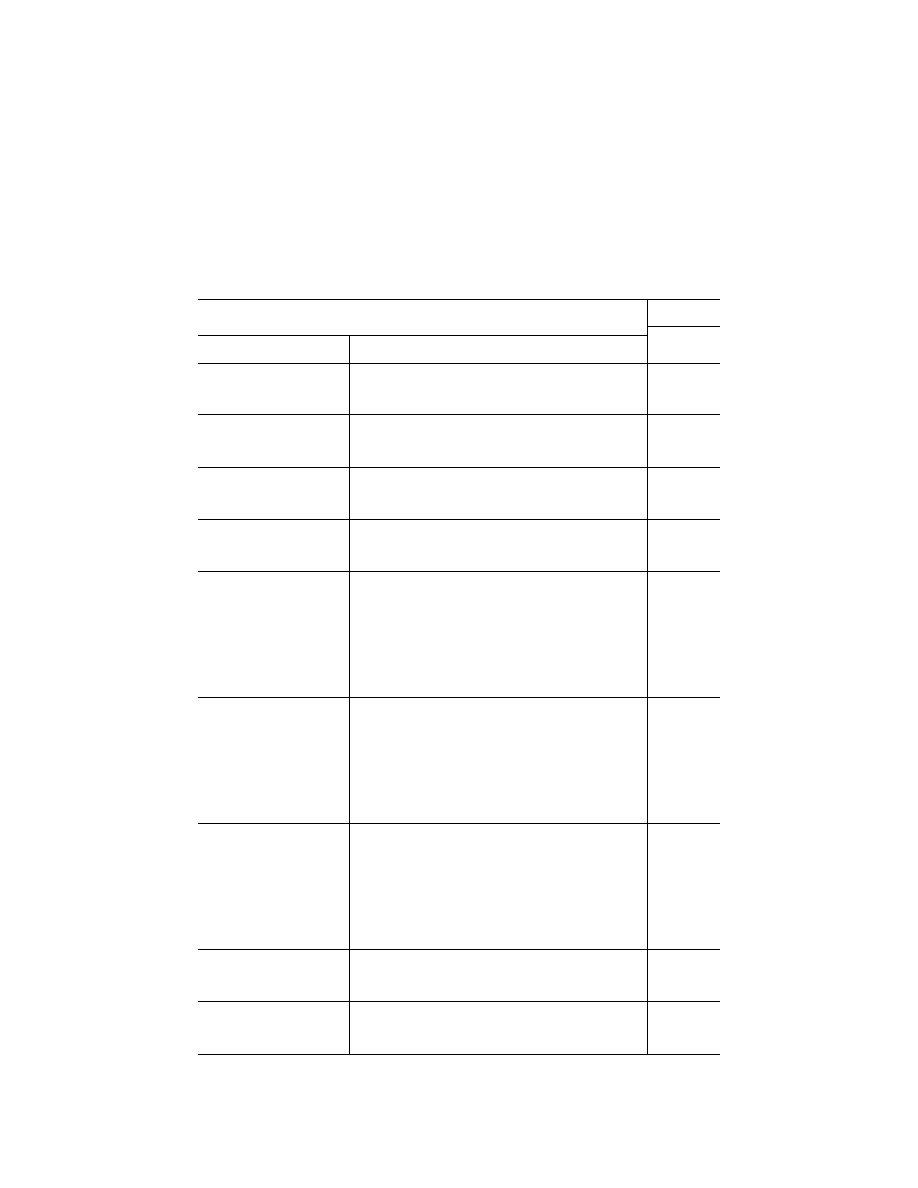
282
14 CFR Ch. I (1–1–19 Edition)
Pt. 60, App. B
T
ABLE
B2F—A
LTERNATIVE
D
ATA
S
OURCES
, P
ROCEDURES
,
AND
I
NSTRUMENTATION
L
EVEL
6 FTD—
Continued
QPS Requirements
The standards in this table are required if the data gathering methods described in paragraph 9 of Appendix
B are not used.
Information
Objective test reference number
and title
Alternative data sources, procedures, and instrumentation
Notes
1.b.7. ................................................
Performance.
Takeoff.
Rejected takeoff.
Data may be acquired through a synchronized video recording of a
stop watch and the calibrated airplane airspeed indicator. Hand-
record the flight conditions and airplane configuration.
This test is re-
quired only if
RTO is
sought.
1.c.1. ................................................
Performance.
Climb.
Normal climb all engines operating.
Data may be acquired with a synchronized video of calibrated airplane
instruments and engine power throughout the climb range.
1.f.1. .................................................
Performance.
Engines.
Acceleration
Data may be acquired with a synchronized video recording of engine
instruments and throttle position.
1.f.2. .................................................
Performance.
Engines.
Deceleration
Data may be acquired with a synchronized video recording of engine
instruments and throttle position.
2.a.1.a. .............................................
Handling qualities.
Static control tests.
Pitch controller position vs. force
and surface position calibration.
Surface position data may be acquired from flight data recorder (FDR)
sensor or, if no FDR sensor, at selected, significant column positions
(encompassing significant column position data points), acceptable
to the NSPM, using a control surface protractor on the ground. Force
data may be acquired by using a hand held force gauge at the same
column position data points.
For airplanes
with reversible
control sys-
tems, surface
position data
acquisition
should be ac-
complished
with winds
less than 5
kts.
2.a.2.a. .............................................
Handling qualities.
Static control tests.
Wheel position vs. force and sur-
face position calibration.
Surface position data may be acquired from flight data recorder (FDR)
sensor or, if no FDR sensor, at selected, significant wheel positions
(encompassing significant wheel position data points), acceptable to
the NSPM, using a control surface protractor on the ground. Force
data may be acquired by using a hand held force gauge at the same
wheel position data points.
For airplanes
with reversible
control sys-
tems, surface
position data
acquisition
should be ac-
complished
with winds
less than 5
kts.
2.a.3.a. .............................................
Handling qualities.
Static control tests.
Rudder pedal position vs. force and
surface position calibration.
Surface position data may be acquired from flight data recorder (FDR)
sensor or, if no FDR sensor, at selected, significant rudder pedal po-
sitions (encompassing significant rudder pedal position data points),
acceptable to the NSPM, using a control surface protractor on the
ground. Force data may be acquired by using a hand held force
gauge at the same rudder pedal position data points.
For airplanes
with reversible
control sys-
tems, surface
position data
acquisition
should be ac-
complished
with winds
less than 5
kts.
2.a.4. ................................................
Handling qualities.
Static control tests.
Nosewheel steering force.
Breakout data may be acquired with a hand held force gauge. The re-
mainder of the force to the stops may be calculated if the force
gauge and a protractor are used to measure force after breakout for
at least 25% of the total displacement capability.
2.a.5. ................................................
Handling qualities.
Static control tests.
Rudder pedal steering calibration.
Data may be acquired through the use of force pads on the rudder
pedals and a pedal position measurement device, together with de-
sign data for nosewheel position.
VerDate Sep<11>2014
16:30 Jun 25, 2019
Jkt 247047
PO 00000
Frm 00292
Fmt 8010
Sfmt 8002
Q:\14\14V2.TXT
PC31
kpayne on VMOFRWIN702 with $$_JOB